Modern telecommunications infrastructures 5G
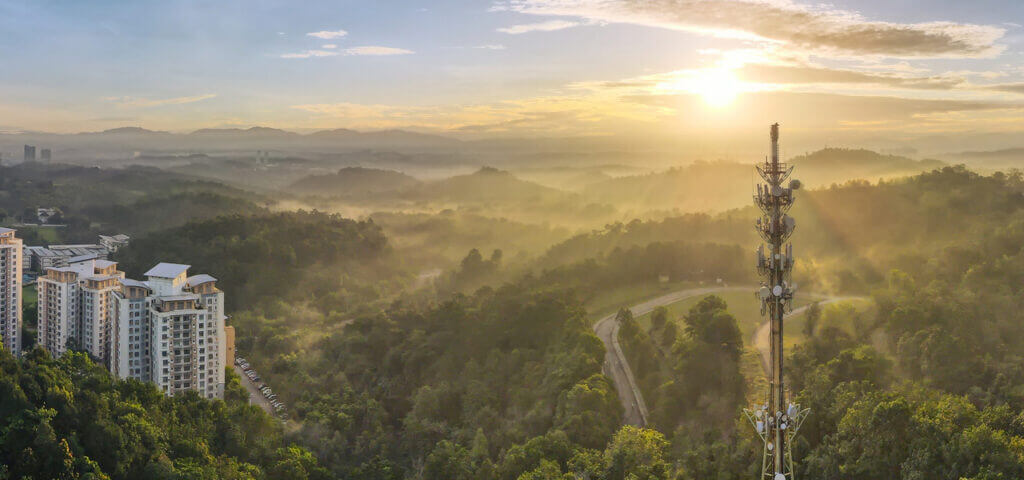
The expansion of mobile communications in Germany is an important driver of digitalization. The 5th generation (5G), the new standard for data transmission, is up to 10 times faster than its predecessor 4G. According to the German Federal Office for Information Security (BSI), the expansion of the German 5G network is being carried out according to much stricter security criteria than was the case with previous mobile networks such as 3G or 4G. Recognized security certificates for security-relevant components are mandatory. This standard was introduced for the first time since the start of modern mobile communications in 1992. The use of 5G as the new mobile communications standard will significantly advance the digitalization of the state, economy and society. At the same time, the "Introduction of 5G" project is one of the largest infrastructures of the coming century.
An uninterruptible power supply is also necessary for secure 5G provision. The term Security of supply in the context of electricity generation means that as much electricity is always generated as the consumer demands. Compared to other industrialized nations, Germany traditionally has a very high level of security of supply. The average duration of power outages within a year is just a few minutes. However, the so-called "System Average Interruption Duration Index" (SAIDI) only records supply interruptions with a duration of more than three minutes. This index indicates the average supply interruption per connected end consumer within a calendar year.
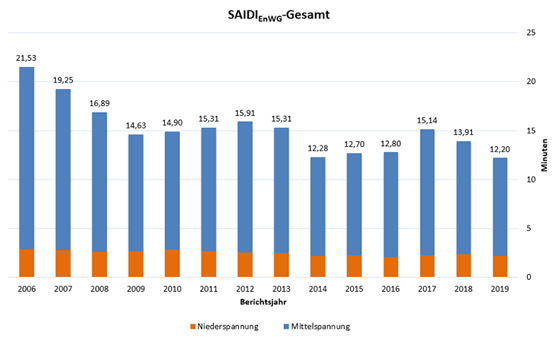
SAIDI - Nationwide development 2006-2019, supply interruptions lasting more than three minutes (source: Federal Network Agency)
The energy transition will affect security of supply, but the German government has set itself the goal of maintaining the existing high level even under changed conditions. In particular, the increasing proportion of electricity generated from renewable energy sources and the simultaneous phase-out of coal and nuclear energy pose challenges for security of supply. During the forthcoming fundamental transformation of energy generation, the current high level of security of supply should be maintained at all times.
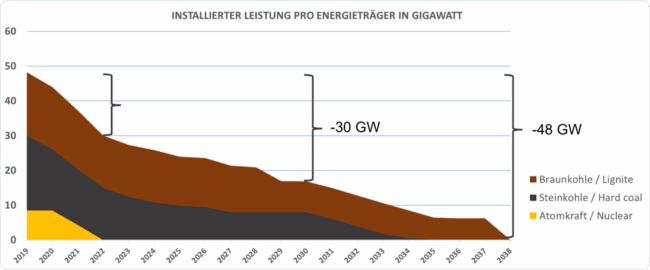
Phase-out paths for coal and nuclear power in Germany (Image: Reveman Energy Academy)
According to the BSI, interruptions to the power supply by distribution network operators (DSOs) and energy supply companies (ESCOs) occur time and again despite the high level of security of supply. The majority of these disruptions are so short, lasting less than a second, that people do not notice them. As these interruptions last less than 3 minutes, they are not recorded in the SAIDI index. However, even interruptions in the millisecond range are capable of disrupting critical infrastructures such as the 5G network. In addition to interruptions in the supply network, shutdowns due to unannounced work or cable damage during civil engineering work can also cause the power supply to fail.
In the course of the energy transition and also in the context of 5G, the issue of security of supply is becoming increasingly relevant. Electricity suppliers must correctly assess the risk and probability of interruptions occurring. Risks whose probability is known can be assessed and taken into account when making investment decisions. So-called "dark doldrums", i.e. longer periods of low electricity feed-in from wind and solar power plants, must also be taken into account.
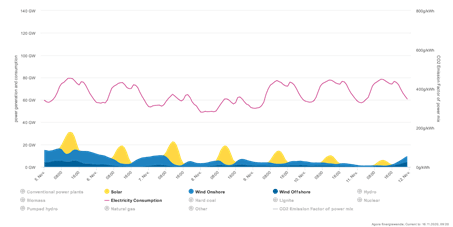
"Dunkelflaute" - electricity from wind and solar power from November 5 to 12, 2020. The installed capacity is 52 GW for solar and 62 GW for wind. The red line is electricity consumption in Germany. (Image: Agora Energiewende)
The implementation of the 5G mobile communications standard, which offers data transmission speeds of up to 1 Gbit/s, will also increase the demand for edge data centers. A decentralized network of edge data centers can help provide low latency for 5G use cases with high device density. Edge data centers will complement existing data centers by acting as an additional processing layer close to the source.
5G means a lot for Germany. More than just wireless industry. The Internet of Things, energy grids, smart cities and agriculture - everything should communicate with each other. 5G is considered a necessary condition for digitalization and economic progress. Whether 5G works can determine how Germany can keep up internationally. However, connecting everything with everything also makes everything more vulnerable. When everything around us is smart, a power outage no longer just means "lights out". Then suddenly everything is at stake.
State-of-the-art 5G infrastructures and edge data centers require maximum reliability. The public 50 Hz networks are usually used as the power supply. Deutsche Bahn has an 18,500-kilometre-long fiber optic network. In future, mobile phone providers will be able to use unused parts of this network to supply the internet. However, the railroad's power supply is provided by a 16.7 Hz network. High-availability, uninterruptible power supplies are available for both networks.
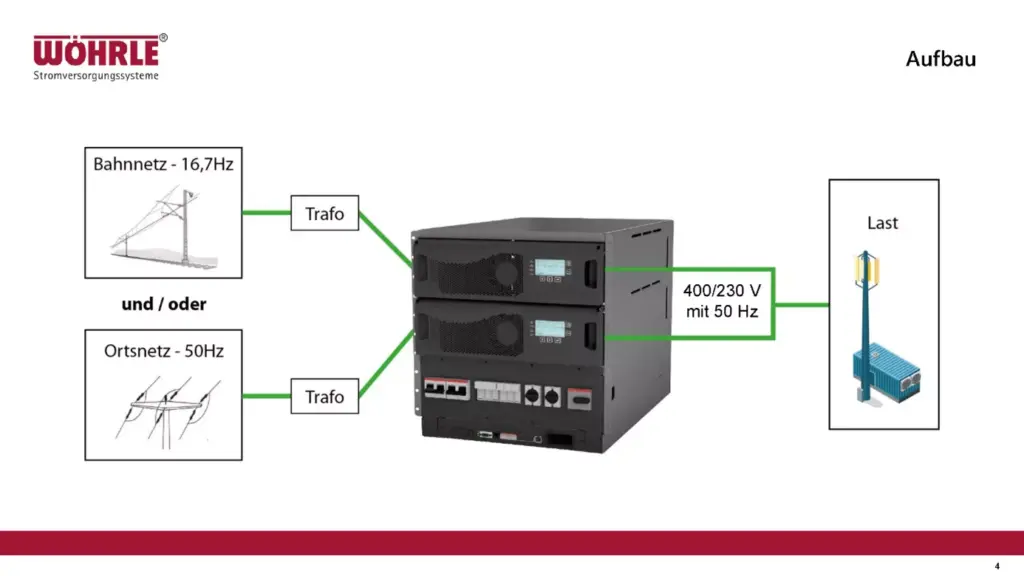
Traction current and/or local network, both are possible. (Image: Wöhrle)
Ordinance on General Terms and Conditions for the Supply of Electricity to Tariff Customers
(AVBEltV) § 4 Type of supply"Voltage and frequency are kept as constant as possible. It must be possible to operate standard consumer appliances without any problems. If the customer places requirements on the power quality that go beyond these obligations, it is the customer's responsibility to take precautions to ensure the trouble-free operation of their appliances and systems."
